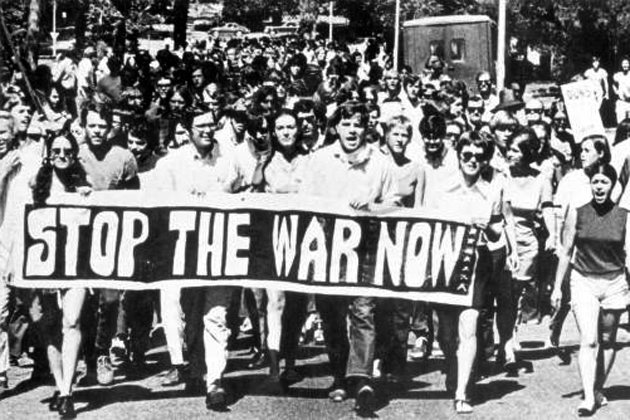
Much of the Vietnam War revolves around the Social Movement theory. First, it started with a public issue; the U.S. was involved in a war down in Vietnam that many Americans viewed as being unnecessary and counterproductive from what it stands for. The anti war rhetoric then became a trend spreading across the U.S., until enough Americans got involved for it to be considered a campaign and later the social movement we know today.
One interesting thing to note is that although there were several Americans involved in the Vietnam protests, "anti-war protesters were viewed negatively by the great majority of Middle Americans. According to Schuman (1972), "Poll data show clearly that open protest against the war is not well regarded by the great majority of American adults" (p. 516). Further support for this claim is provided by the Survey Research Center of the University of Michigan (cited in Converse and Schuman, 1970), which found in 1968 that almost 75% of Americans had essentially negative reactions to anti-war protesters." (Gustains, 204). While the war was unpopular with most Americans, it's readily apparent that not everybody was satisfied with the way in which protests were conducted. Many rallies that started off as peaceful protests would later turn into a chaotic state leading to the arrest of several.
"The relationship between the counter-culture and Vietnam War protesters was akin to that between chickens and eggs: precise cause and effect is difficult to determine. Prior to the significant commitment of troops to Vietnam, there had been a number of persons who rejected traditional American values in favor of a less conventional lifestyle." (Gustains, 206). We can see from this excerpt of the article in particular that the counterculture of the 60's (hippies) was intertwined with the Vietnam War protests. It's logical to assert from this scenario that this could've contributed to the negative public reception to the Vietnam War protests, with middle class Americans looking down upon the counterculture of the U.S.
No comments:
Post a Comment